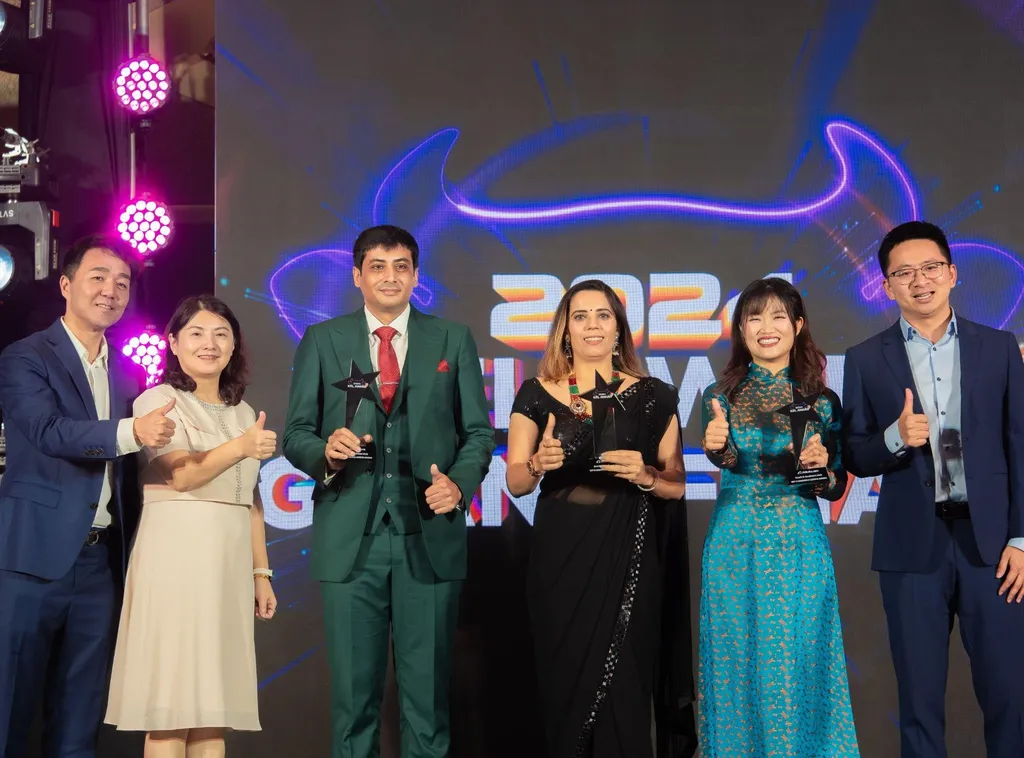 advertisement
advertisement

A business empire built on the Internet
Ravin Sadh entered the world of foreign trade in 1999, coinciding with the establishment of Alibaba.com. His company, Conifer Handmades (India), specialises in producing eco-friendly gift bags and handicrafts.
 |
| Ravin Sadh sharing his journey of building Conifer Handmades at the event. |
Starting with “three nos”: no revenue, no large office, and no established brand, after more than two decades, the company’s products have been exported to 35 markets, generating $2 million in revenue last year. Interestingly, the entire empire was built on e-commerce, all powered by the e-commerce platform Alibaba.com.
In a similar vein, Norwich Streetwear (Pakistan) has risen to prominence. The company boasts a 760-square-metre factory, a production line with 350 machines, an annual capacity of one million products, and $10 million in revenue in 2023.
It’s hard to imagine that the company began modestly, with only 770 shirts in November 2014. CEO Tayyub Hussnain even admitted that he had to borrow a friend’s factory to make it happen.
“Not only that, I also had to borrow $500 from relatives and friends to become a Silver member of Alibaba in 2014,” Tayyub said.
Unlike these two, who started from scratch, Xuan Hai Yen, Deputy Director at Proline Vietnam Manufacture and Trading, a company exporting a diverse range of products, including food bags and ESD anti-static bags, already had a factory and customers. However, 100% of her online customers came from Alibaba.com.
 |
| Xuan Hai Yen sharing her journey of building Proline Vietnam at the event. |
Proline Vietnam joined Alibaba.com as a Gold member in 2016 but initially made little investment. It wasn’t until 2018, when she decided to prioritise business expansion, that the company secured its first U.S. order. By 2022, Japanese orders were coming in, and by the close of 2023, export revenue had risen by 30%, with 90% of earnings generated from clients in the UK and the United States.
Building on this momentum, Xuan Hai Yen said that the company’s 2024 target includes sustaining a 30% revenue growth rate and achieving 70% export customer representation (up from 50% last year).
The three businesses are among the ten representatives from South Asia and Southeast Asia participating in the KEL Award 2024 (Key E-commerce Leader Award), organised by Alibaba.com, a leading platform for global business-to-business (B2B) e-commerce. This event reflects Alibaba.com’s commitment to fostering the growth of small and medium-sized enterprises (SMEs) in the global e-commerce sector.
 |
| Top 3 key e-commerce leaders for the KEL Award 2024 |
The competition is open to owners, key personnel, and managers of companies selling on Alibaba.com. The minimum requirements are achieving a two-star rating or higher and actively operating on the platform for at least six months.
Experience in closing million-dollar deals
However, the award’s value goes beyond that. Alibaba.com believes that by sharing the motivational tales of the KEL Award sellers, the company can inspire other businesses in South and Southeast Asia to get involved in the high-potential arena of global digital trade.
“For businesses that have already embarked on their digital trade journeys, we hope these success stories offer valuable insights and strategies for breakthrough, innovation, and diversified growth to succeed on a global scale,” said Shawn Yang, General Manager of Global Business Development at Alibaba.com.
Tayyub Hussnain of Norwich Streetwear shared that the company operates 27 sales accounts on Alibaba.com to effectively expand its customer base.
“For the fashion industry, priority should be given to women in the customer care department because women have a higher customer response rate,” he said.
According to Proline Vietnam, businesses should consider phased advertising strategies and adopt unique approaches. In that industry, Chinese corporations invest considerably in advertising, so they respond by purchasing keywords for a year.
She also mentioned that Alibaba.com’s AI Smart Assistance, currently offered free of charge, should be leveraged by businesses. This tool helps with keyword selection, crafting content, and composing email invitations, optimising work efficiency.
Yen has become a Verified Supplier on Alibaba.com, a status that grants her access to clients with larger order values.
“However, my advice to businesses is to start by investing small membership fees, and consolidate operational processes and production capacity before upgrading,” said Ms. Yen.
Meanwhile, Ravin’s advice for new entrants looking to succeed in the B2B marketplace is to be patient. Building long-term relationships is critical—he once secured an order from a client after a decade of staying in touch.
As a result, even though AI is rapidly evolving, in the B2B sector, clients still prefer to interact with real people and cannot be replaced by robots. Finally, even if you are an Alibaba.com Verified Supplier, you must interact with the platform’s new consumers regularly to produce orders.
“It’s like paying for an expensive modern gym but not exercising - your health can’t improve,” said Ravin Sadh.




